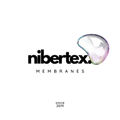Interviews
China needs law on domestic use & emission of NP, NPE
01 Sep '11
2 min read
The recent Greenpeace report on “investigation on toxic and harmful residues of global brand clothing” has brought pressure on the Chinese Government to enact laws banning the domestic use and emission of nonylphenol (NP) and nonylphenol ethoxylates (NPE).
In 2005, the EU enacted the regulation on Registration, Evaluation, Authorisation and Restriction of Chemicals (REACH) prohibiting the use of NP and NPE by textile manufacturers. However, it was only early this year that the Chinese Government added NP and NPE to the list of severely restricted toxic chemicals, both for China's import and export.
But, the country did not issue any such regulation for use and emission of NP and NPE within the country. The lapse in enacting law is now beginning to show adverse effects.
In 2010, the Greenpeace had found wild fish in the Yangtze River containing huge amount of environment hormone substances like NP.
The recent Greenpeace report, which came on the heels of condemnation of water pollution caused by apparel brands a month ago, is based on 78 samples of 15 well-known brands.
The samples were tested at a qualified third-party laboratory and the results showed that samples of 14 brands contained toxic and harmful substances. About two-thirds of the samples inspected, including those of Li Ning and Adidas, were found to be containing NPE.
The samples of casual clothing, sportswear and footwear were bought by Greenpeace from 18 countries including China, Argentina and Britain. These samples had their origins in 13 textile manufacturing nations, including China, Indonesia, Thailand, Bangladesh and Sri Lanka.
The healthy lifestyle ads of Li Ning, Adidas and other sports brand mask the harm caused by the companies during manufacturing, according to a Greenpeace official working on pollution prevention project. He says, NPE damages human health and environment, and some well-known brands are being allowed to release them into China's rivers, which is threatening to enter food chain and affect people's health.
Normally, people have a tendency to wash new clothes before wearing them. But, experts say, it does not fully remove the toxic and harmful substances from them that harm people's body. They say it has now become urgent for China to improve its regulations regarding the use and emission of NP and NPE within the country.
In 2005, the EU enacted the regulation on Registration, Evaluation, Authorisation and Restriction of Chemicals (REACH) prohibiting the use of NP and NPE by textile manufacturers. However, it was only early this year that the Chinese Government added NP and NPE to the list of severely restricted toxic chemicals, both for China's import and export.
But, the country did not issue any such regulation for use and emission of NP and NPE within the country. The lapse in enacting law is now beginning to show adverse effects.
In 2010, the Greenpeace had found wild fish in the Yangtze River containing huge amount of environment hormone substances like NP.
The recent Greenpeace report, which came on the heels of condemnation of water pollution caused by apparel brands a month ago, is based on 78 samples of 15 well-known brands.
The samples were tested at a qualified third-party laboratory and the results showed that samples of 14 brands contained toxic and harmful substances. About two-thirds of the samples inspected, including those of Li Ning and Adidas, were found to be containing NPE.
The samples of casual clothing, sportswear and footwear were bought by Greenpeace from 18 countries including China, Argentina and Britain. These samples had their origins in 13 textile manufacturing nations, including China, Indonesia, Thailand, Bangladesh and Sri Lanka.
The healthy lifestyle ads of Li Ning, Adidas and other sports brand mask the harm caused by the companies during manufacturing, according to a Greenpeace official working on pollution prevention project. He says, NPE damages human health and environment, and some well-known brands are being allowed to release them into China's rivers, which is threatening to enter food chain and affect people's health.
Normally, people have a tendency to wash new clothes before wearing them. But, experts say, it does not fully remove the toxic and harmful substances from them that harm people's body. They say it has now become urgent for China to improve its regulations regarding the use and emission of NP and NPE within the country.
Fibre2fashion News Desk - China
Popular News
Leave your Comments
Ata Turgutalp
Eliar Elektronik San. A.S.
































-Ltd..jpg?tr=w-120,h-60,c-at_max,cm-pad_resize,bg-ffffff)





.jpg?tr=w-120,h-60,c-at_max,cm-pad_resize,bg-ffffff)
.jpg?tr=w-120,h-60,c-at_max,cm-pad_resize,bg-ffffff)






